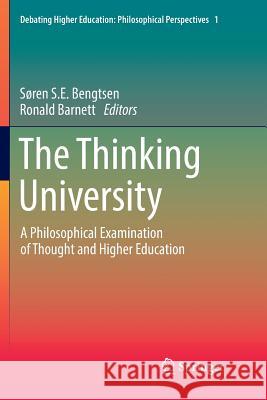The Thinking University: A Philosophical Examination of Thought and Higher Education » książka
topmenu
The Thinking University: A Philosophical Examination of Thought and Higher Education
ISBN-13: 9783030085070 / Angielski / Miękka / 2018 / 200 str.
Kategorie:
Kategorie BISAC:
Wydawca:
Springer
Seria wydawnicza:
Język:
Angielski
ISBN-13:
9783030085070
Rok wydania:
2018
Wydanie:
Softcover Repri
Numer serii:
000830176
Ilość stron:
200
Waga:
0.31 kg
Wymiary:
23.39 x 15.6 x 1.17
Oprawa:
Miękka
Wolumenów:
01
Dodatkowe informacje:
Wydanie ilustrowane











